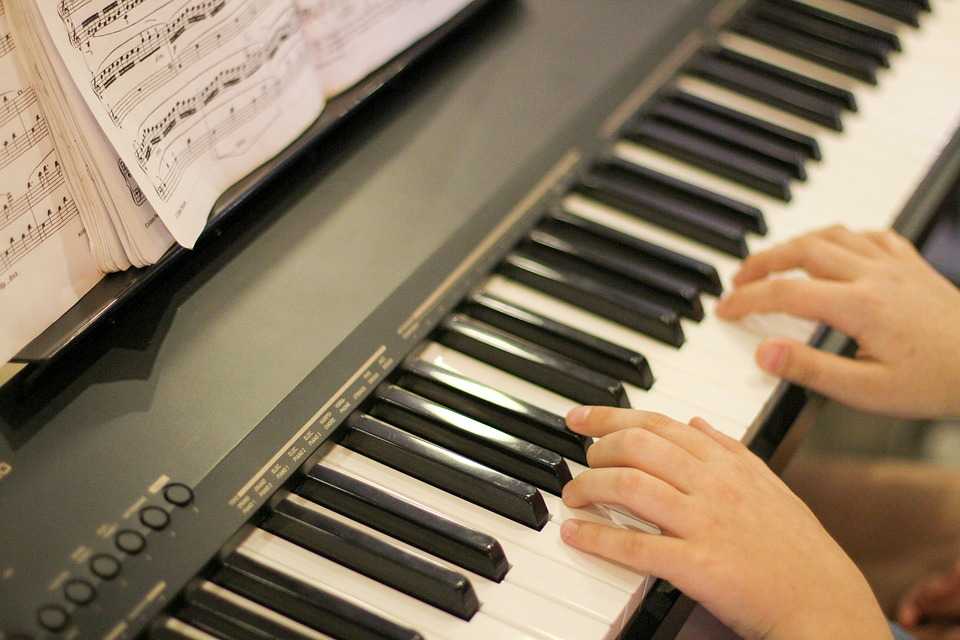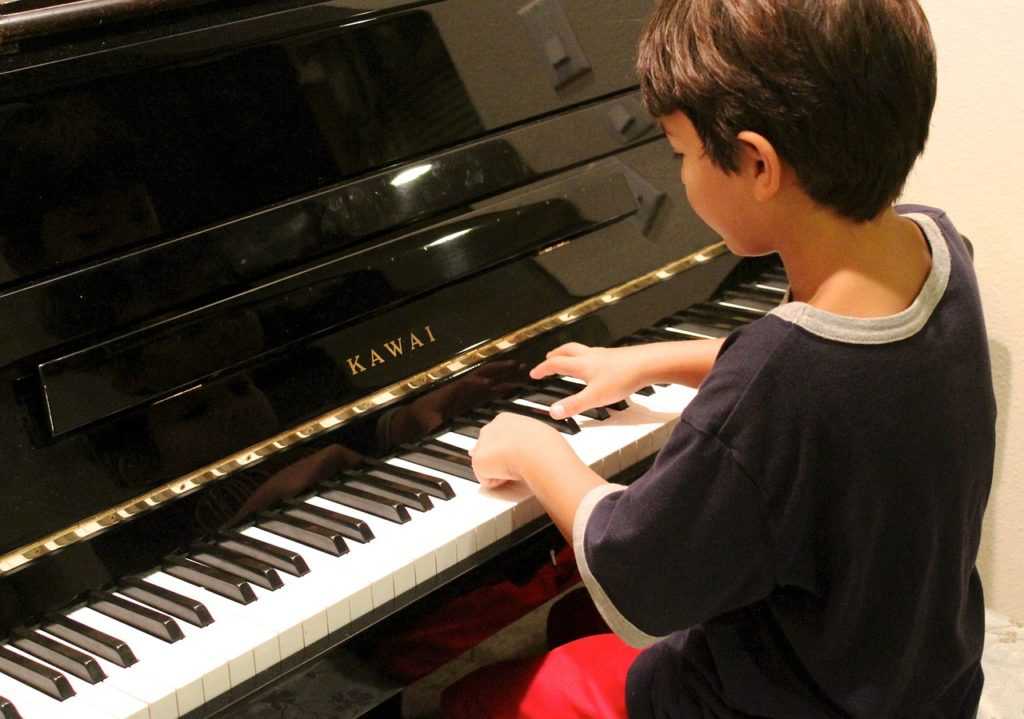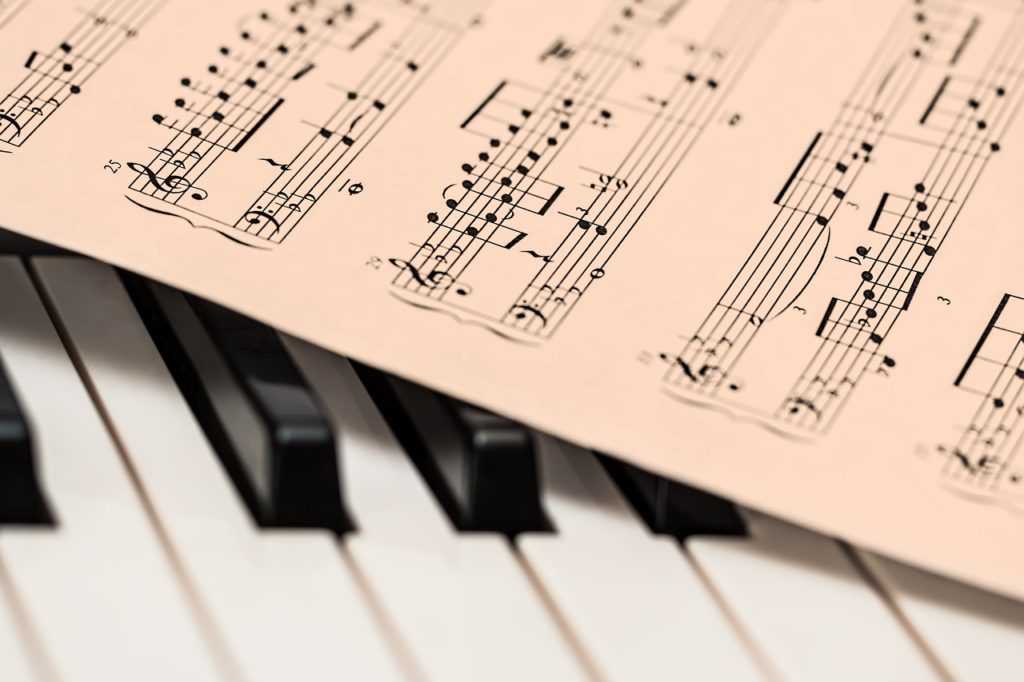How to Get the Most Out of Your Piano Lessons

If you want to become a better pianist, then investing in piano lessons is one of the best ways to improve your knowledge and skills. But did you know that there are specific strategies you can use to get the most value out of each music lesson that you take? From making your lessons more productive to finding better ways to prepare during your time at home, here are 6 strategies that can help you to get the most out of your lessons.
6 Tips to Get the Most Out of Your Piano Lessons
Want to become a better musician, increase your piano skills, and get the most out of your investment in music lessons? Put these six tips to work.
Be Clear About Your Goals
When you first meet your piano teacher, it’s important to be clear about your goals and your reasons for taking lessons. Your reasons for taking piano lessons may include the following:
- You want to improve your playing skills so that you can play with school groups, orchestras, and more
- You need help to prepare for upcoming auditions or performances
- You have goals of pursuing music as a career
- You enjoy music and want to be able to play for fun
Each of these goals will require a different teaching strategy. By sharing your goals with your teacher and being honest about your aspirations, you’re helping your teacher to customize their teaching style to give you the best results possible.

Keep a Lesson Journal
Your teacher may create a lesson journal for you, but if they don’t, be sure to keep a journal of your own. Use your journal to track the tips your teacher suggests, to record your practice assignments, and to manage any other important information. Then, review your lesson journal each day before you practice to make sure that you’re covering the materials that you should and are incorporating the right etudes and exercises into your practice sessions.
Record Your Lessons
Have you ever taken a lesson, only to get home and not be able to recall some of the points that your teacher was making? It’s frustrating and can slow down your progress, but there’s a simple solution: Record your lessons. (That's one of the reasons our student app allows you to record your lessons.)
With your teacher’s permission, record portions (or all) of your piano lessons. Then, once home, you can review the lessons. Not only does this method help you to better absorb everything that your teacher was saying, but it also allows you to listen to particular passages to make sure that you’re practicing them correctly.
Thanks to smartphone recording apps, it’s easy to record and review your lessons.
Follow Your Teacher’s Practice Recommendations
Even with regular piano lessons, you won’t make real progress unless you practice appropriately in between your lessons. Follow your teacher’s recommendations for practice length and frequency. If you need to, make up a schedule with specific times blocked off for your practice sessions.
In addition to practicing regularly, though, make sure that you’re actively practicing, rather than just going through the motions. Active practicing requires you to be focused, paying attention to how you’re playing, and willing to take apart the difficult sections so that you can master them. This can be hard if you’re trying to practice after a long, busy day, or first thing in the morning. You may need to experiment with your practice times in order to find a situation and time when you’re focused and ready to actively practice.

Get to Your Lessons on Time
Be sure to arrive at your piano lessons on time and ready to get to work. Try to get to your lessons about 10 minutes early so you have a little time to settle in and relax, and so that you’re ready to go as soon as your teacher’s available. Rushing into lessons late makes it difficult to focus and eats into your valuable lesson time.
Train with a Professional
Make sure that you’re working with a professional piano teacher who has the knowledge and resources to truly help you. Your teacher should have plenty of experience in both performing and teaching, and they should be able to provide you with etudes, exercises, and repertoire pieces that are both challenging and yet appropriate for your skill level.
At Sage Music School our professional piano teachers will be able to explain technique and ideas in a number of different ways so that you can understand and apply them to your learning. They’ll also be able to structure the lesson program so that you are always making steady progress toward your goals.
The above tips can help you to make the most of your piano lessons, so you’re getting the maximum value for both your money and your time.
Related

Sage


Staff
